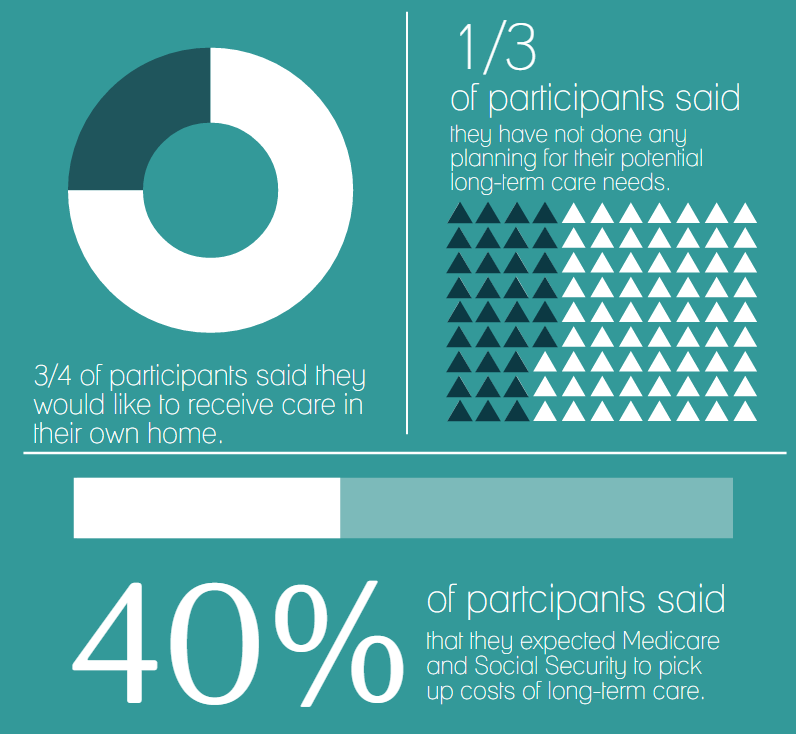AARP Hearing Center

With many Americans worrying about matters such as the latest Presidential election polls, Dancing With the Stars contestants, or who would win the lottery for the first pick in the National Basketball Association draft (Go Sixers!), there are several things distracting Americans from another important issue at hand: Long-term care.
In a new survey released by the Associated Press – NORC Center for Public Affairs Research at the University of Chicago, research showed that many Americans are not worrying enough about how to pay for long-term care, unless it is directly impacting them.
The 2016 Long-Term Care Poll revealed a great deal about Americans’ expectations and concerns about their health care and living needs as they grow older.
Some of the results were expected, some were troubling, and some showed that respondents did not have a full understanding for how the long-term care system works.

For Pennsylvanians, this information reflects a bit of optimism combined with a healthy dose of concern about the future of long-term services and supports for the Commonwealth. The good news is that we continue to make significant strides toward balancing our long-term services and supports system between home and community based care and nursing homes. The concerns are raised by the hope of individuals that they will never need long-term care or misperception that the potential costs of these programs will be taken care of by Medicare or Social Security
The truth is that except for relatively short rehabilitation stays, Medicare will not pay for the costs of long-term care (Social Security also does not pay for these services, except as a source of income for those eligible). Instead, individuals are responsible for these costs. Certain long-term care insurance policies, purchased on the private insurance market, will cover a portion of these costs, but as the 2016 Long-Term Care Poll shows, only 20 percent of Americans have such a policy.
With the costs of nursing home coverage now exceeding $100,000 a year in many parts of the country, few families can afford extended stays in long-term care facilities. The Medicaid program is where families that have run out of money and assets turn to pay for long-term care. But funding for Medicaid depends on the federal and state government budgets, and with the costs and need for long-term care growing, taxpayers will ultimately be responsible for paying for Medicaid coverage of long-term care.
While the immediate impact of this situation directly affects those currently in need of long-term services and supports, it is something with which we all need to be concerned. Why? Earlier this year the Pennsylvania Independent Fiscal Office issued their 5 year economic and budget outlook for the Commonwealth which provided some startling information.
Highlighted in the second paragraph of the Executive Summary of the report are the following demographic statistics:
Between 2015 and 2025…
- The number of Pennsylvanians aged 19 and under will contract by 0.5 percent
- The number of Pennsylvanians aged 20-65 will contract by 2.9 percent
- The number of Pennsylvanians aged 65 and over will increase by 31.5 percent
Older Pennsylvanians are the group most likely to utilize long-term services and supports. The dramatic increase in the 65+ population over the next decade is likely to result in a similar increase in the need for these services, and as mentioned previously, if these individuals cannot afford long-term services and supports, the fallback is Medicaid.
There are no quick or simple answers to the challenges of funding long-term care for the future. But reading the results of the Long-Term Care Poll shows how urgent it is that policy makers don’t follow the lead of the one-third of Americans who have done no planning for long-term care – we need to begin a serious debate about how Pennsylvania, and the United States as a whole, will be able to afford those future long-term care needs for years to come.
“Ray’s Round Up” features updates on current state and federal issues by Ray Landis, AARP PA’s Advocacy Manager.































































